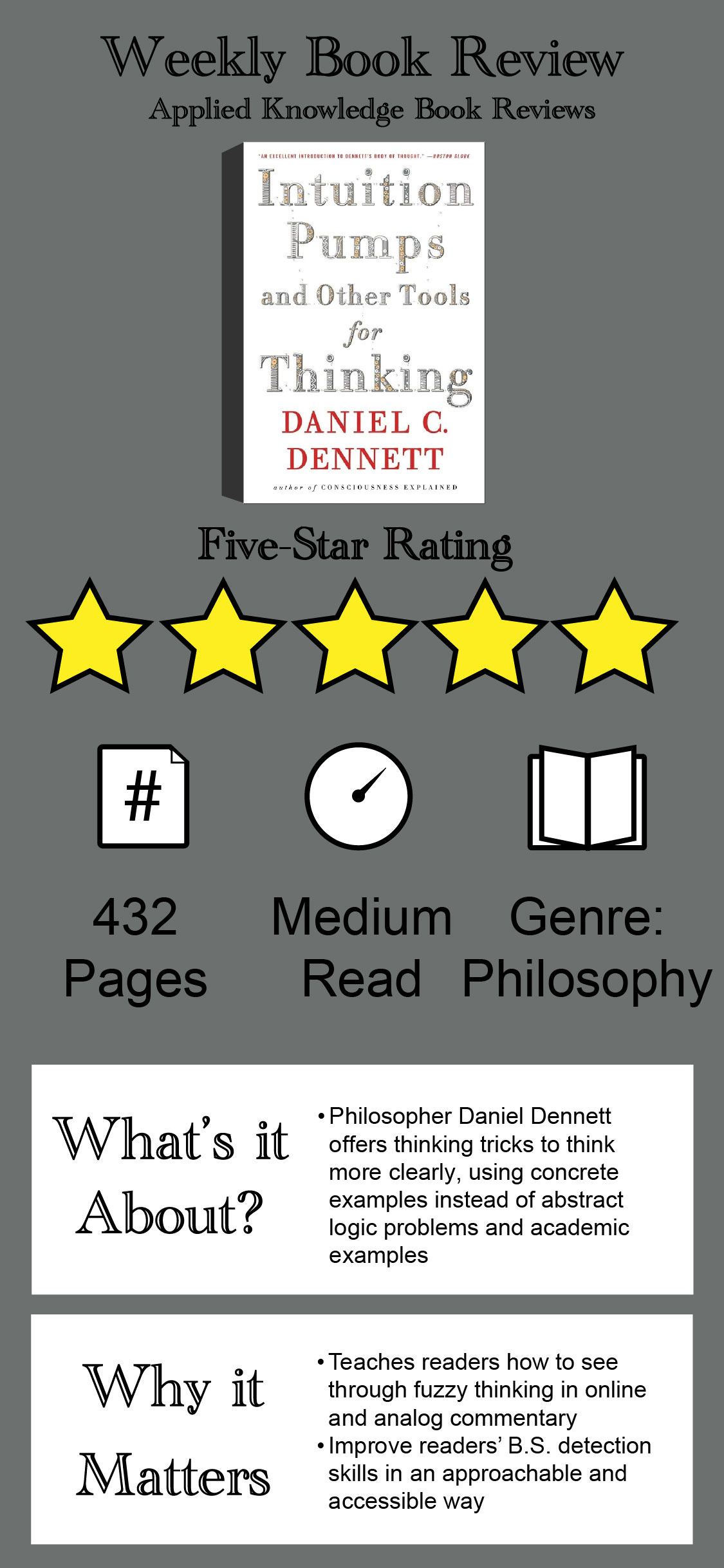Here are Some Concrete Ways to Think More Clearly
Philosopher Daniel Dennett has practical and concrete examples for thinking more clearly and catching bad arguments in real time.
A lot of online influencers claim to be able to think clearly, but Daniel Dennett’s book Intuition Pumps and Other Tools for Thinking gives concrete thought exercises for more robust thinking. Each thinking tool he describes has its own, usually short, chapter, so it’s a great reference for anyone trying to decide who to trust in a noisy online environment.
One of Dennett’s first examples is a common magician’s trick. The magician will promise to show the audience an incredible trick, and he’ll try. But he may attempt a trick with a 1 in 1,000 chance of working. If it fails, he can move on to one with a 1 in 100 chance, then one with a 1 in 10 chance. The audience doesn’t know the magician is attempting easier tricks, so they don’t recognize when he makes mistakes.
That’s the point.
Without seeing the mistakes someone makes, it’s impossible to know how much to trust them. Online commentators can select their facts so that alternate explanations are hidden underneath a compelling story.
“By hiding all the ‘mistake’ cases from view…you create a ‘miracle,’” Dennett wrote.
Even Lunatics Believe Some True Things
When online commentators hide their mistakes, they replace them with facts that tell the story they want to tell. Some of those facts are true, which can trick readers into thinking an entire argument is true.
Dennett offers a thought experiment. Imagine a brain surgeon could implant a false belief in your mind, like “I have an older brother in Cleveland.” If you don’t, then other beliefs will disprove the false belief. Remembering that you’re an only child and that you cannot recall your older brother’s name would help you figure out that you had no older brother, much less one in Cleveland.
Dennett uses this thought experiment to make a crucial point about unreason:
“…this very elaboration is clear evidence that the person doesn’t just have an isolated ‘proposition’ stored in her brain; even a delusional belief requires the support of a host of non-delusional beiefs and the ability to acknowledge the implications of all this.”
Thought Experiments Have to be Tethered to Reality
Crazy beliefs often springboard off of reasonable ones. So, it’s important for even thought experiments to remain connected to facts to test ideas.
Anyone can come up with a thought experiment, but some people go further and invent entire universes with their own physics to make thought experiments reach their desired conclusions.
Dennett goes through a few thought experiments that try to prove ridiculous conclusions. One line he takes particular issue with is a hypothetical philosopher who says, “For the sake of argument we’re suspending the laws of physics. Didn’t Galileo do the same when he banished friction from his thought experiment?” Dennett’s answer is straightforward:
“Yes, but a general rule fo thumb emerges from the comparison: the utility of a thought experiment is inversely propertional to the size of its departures from reality.”
Galileo removed friction from a thought experiment on motion to simplify an experiment. A wholesale abandonment of many laws of physics would remove too many variables from a thought experiment and make it an alternate universe instead of a promising lead on a new scientific concept.
Thinking is hard work and like anything else, it is difficult to do well and requires practice. There are plenty of books on logic and argument structure, but few people are going to decide whether a post on X is modus ponens or modus tollens.
Dennett’s book is full of practical examples that can sharpen your mind with concrete suggestions instead of vague pleas to “be more rational.” In response to people who invoke Occam’s Razor to prove the existence of God because of the explanation’s (supposed) simplicity:
“Occam’s Razor is, after all, just a rule of thumb, a frequently useful suggestion. The prospect of turning it into a Metaphysical Principle or Fundamental Requirement of Rationality that could bear the weight of proving or disproving the existence of God in one fell swoop is simply ludicrous. It would be like trying to disprove a theorem of quantum mechanics by showing that it contradicted the axiom ‘Don’t put all your eggs in one basket.’”
There’s no substitute for engaging with the hard details of a topic. There are no thinking shortcuts that get around detail work, but there are many thinking tools and intuition pumps that can help readers catch nonsense when it pops up on their social media feeds.


